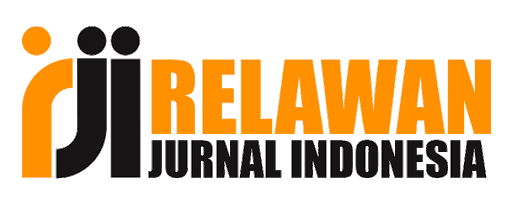Fiqh of Diffable in Theo-Antro-Juridical Perspective: Examining the Divine, Humane and Constitutional Foundation For the Fulfillment of the Rights of Disabled Group
DOI:
https://doi.org/10.51311/nuris.v8i1.275Keywords:
Fikih Difabel, Teo-Antro-Yuridis, Kelompok DifabelAbstract
Since the past, stigma and various forms of discrimination have continued to haunt disabled groups. They become a group that is marginalized from society due to the limitations they experience. Diffable groups should be seen as part of a society that has different abilities. In Islamic doctrine, marginalization and discrimination against these disabled groups is an act that is blamed and prohibited because basically all humans have the same position before God and the only difference is the degree of holiness. Therefore, Islamic law through fiqh products must participate in legitimizing the fulfillment of rights for disabled groups from a religious perspective. This paper will examine the importance of the formulation of fiqh with disabilities as part of respecting human values ​​taught by Islam. Using the theo-anthro-juridical term, this paper will also describe the foundations in formulating the fiqh of persons with disabilities, including theological, humanist, and legal foundations.
Downloads
References
Andriani, Nurul Saadah. “Kebijakan Responsif Disabilitas: Pengarusutamaan Managemen Kebijakan di Level Daerah, Nasional dan Internasional.†PALASTREN Jurnal Studi Gender 9, no. 1 (February 26, 2017): 189–214. https://doi.org/10.21043/palastren.v9i1.2056.
Berger, Peter L, and Thomas Luckmann. “The Social Construction of Reality,†n.d., 125.
Fathoni, Rifai Shodiq. “Menelusuri Sejarah Difabel Pada Masa Kuno.†Wawasan Sejarah (blog), June 15, 2020. https://wawasansejarah.com/sejarah-difabel-masa-kuno/.
Ismail, M Syukri. “Prinsip Kemanusiaan Dalam Islam†5 (2018): 24.
Jalauddin as-Suyuthi. Asbabun Nuzul: Sebab Turunnya Ayat al-Quran. Jakarta, Indonesia: Gema Insani, 2008.
Jamal, Khairunnas, Nasrul Fatah, and Wilaela Wilaela. “Eksistensi Kaum Difabel Dalam Perspektif Al-Qur’an.†Jurnal Ushuluddin 25, no. 2 (December 14, 2017): 221. https://doi.org/10.24014/jush.v25i2.3916.
Latief, M. Syahbuddin. Jalan Kemanusiaan, Panduan Untuk Memperkuat Hak Asasi Manusia. Yogyakarta: Lapera Pustaka Utama, 1999.
Llewellyn, A., and K. Hogan. “The Use and Abuse of Models of Disability.†Disability & Society 15, no. 1 (January 2000): 157–65. https://doi.org/10.1080/09687590025829.
Maftuhin, Arif. “Mengikat Makna Diskriminasi: Penyandang Cacat, Difabel, Dan Penyandang Disabilitas.†INKLUSI 3, no. 2 (August 8, 2016). https://doi.org/10.14421/ijds.030201.
Mubarok, Mohammad Yazid. “Hak-Hak Dan Kewajiban Kaum Disabilitas Sebelum Dan Setelah Islam Datang | Islamic Academika.†Accessed July 9, 2021. http://ejurnal.staiattaqwa.ac.id/index.php/ojs/article/view/84.
Niewyk, Donald L., and Francis R. Nicosia. The Columbia Guide to the Holocaust. Columbia University Press, 2003.
Nursyamsi, Fajri. Kerangka Hukum Disabilitas Di Indonesia: Menuju Indonesia Ramah Disabilitas. Cetakan pertama. Jakarta: Pusat Studi Hukum dan Kebijakan, 2015.
Putusan Mahkamah Konstitusi Nomor 10-17-23/PUU-VII/2009 (n.d.).
Shihab, Quraish. Tafsir Al-Mishbah, Pesan, Kesan Dan Keserasian al-Qur’an. Jilid 8. Ciputat: Lentera Hati, 2009.
Undang-Undang Nomor 39 Tahun 1999 tentang Hak Asasi Manusia (n.d.).
Wolfensberger, Wolf. “A Brief Overview of Social Role Valorization.†Ment Retard 38, no. 2 (2000). https://doi.org/10.1352/0047-6765(2000)038<0105:ABOOSR>2.0.CO;2.
Writer. “Oxford.Dictionary. Diakses Tanggal 25 Januari 2021.<https://Www.Oxfordlearnersdictionaries.Com/>,†n.d.
Zuhalili, Wahbah az-. Tafsir Al-Munir. Damaskus: Dar al-Fikr al-Muashir, 1418.
Downloads
Published
How to Cite
Issue
Section
License
NUR EL ISLAM Journal is an Open Access Journal. The authors who publish the manuscript in this journal agree to the following terms:
(1) The formal legal provisions for access to digital articles of this electronic journal are subject to the terms of the Creative Commons Attribution 4.0 International License (CC BY 4.0), which means that Nur El Islam reserves the right to save, transmit media or format, Database), maintain, and publish articles without requesting permission from the Author as long as it keeps the Author's name as the owner of Copyright.
(2) The reproduction of any part of this journal, its storage in databases and its transmission by any form or media, such as electronic, electrostatic and mechanical copies, photocopies, recordings, magnetic media, etc., will be allowed only with a written permission from Nur El Islam.








